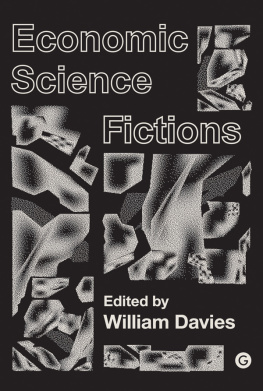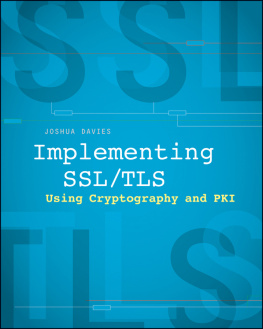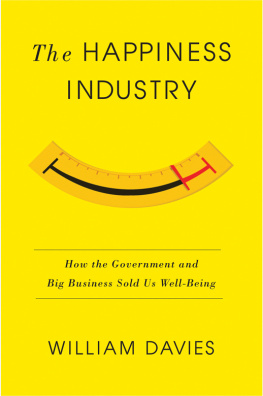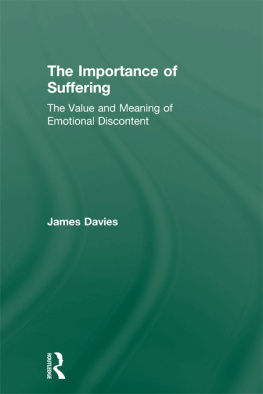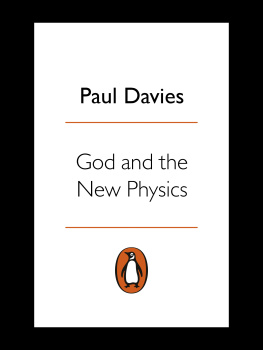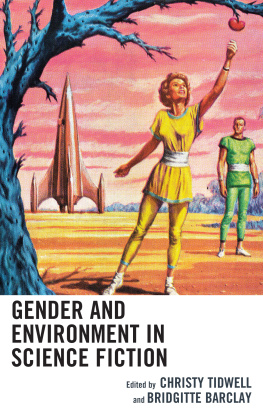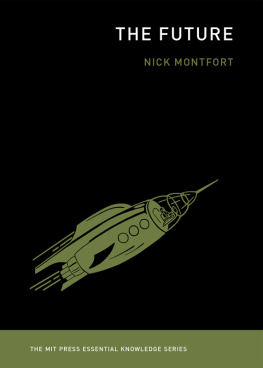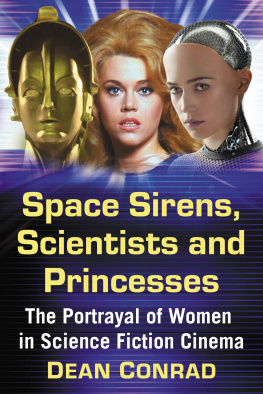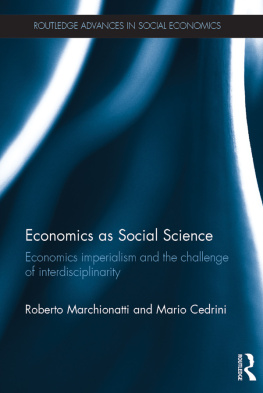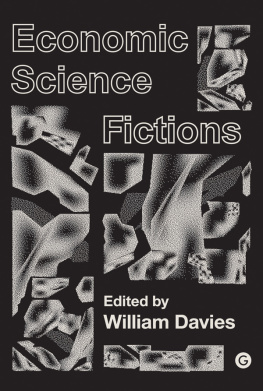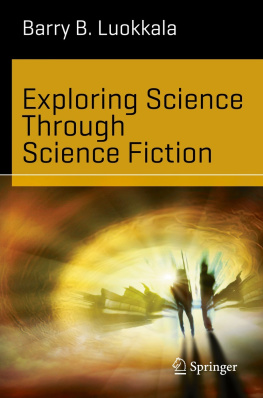Economic Science Fictions
Part of the Goldsmiths Press PERC series
Goldsmiths Political Economy Research Centre (PERC) seeks to refresh political economy, in the original sense of the term, as a pluralist and critical approach to the study of capitalism. In doing so it challenges the sense of economics as a discipline, separate from the other social sciences, aiming instead to combine economic knowledge with various other disciplinary approaches. This is a response to recent critiques of orthodox economics, as immune to interdisciplinarity and cut off from historical and political events.
At the same time, the authority of economic experts and the relationship between academic research and the public (including, but not only, public policy-makers) are constant concerns running through PERCs work.
For more information please visit http://www.gold.ac.uk/perc/.
Economic Science Fictions
Edited by William Davies

2018 Goldsmiths Press
Published in 2018 by Goldsmiths Press
Goldsmiths, University of London, New Cross
London SE14 6NW
Printed and bound by Clays Ltd, St Ives plc
Distribution by the MIT Press
Cambridge, Massachusetts, and London, England
Copyright 2018 William Davies for selection and editorial material. Chapter copyright belongs to individual contributors.
The right of William Davies to be identified as the author of this work has been asserted by him in accordance with sections 77 and 78 in the Copyright, Designs and Patents Act 1988.
All Rights Reserved. No part of this publication may be reproduced, distributed or transmitted in any form or by any means whatsoever without prior written permission of the publisher, except in the case of brief quotations in critical articles and review and certain non-commercial uses permitted by copyright law.
A CIP record for this book is available from the British Library.
Library of Congress Cataloging-in-Publication Data
Names: Davies, William, 1976- editor.
Title: Economic science fictions / edited by William Davies.
Description: Cambridge, Massachusetts: Goldsmiths Press, 2018. |
Includes bibliographical references and index.
Identifiers: LCCN 2017039951 | ISBN 9781906897680 (hardcover: alk. paper)
Subjects: LCSH: Economic forecasting. | Time and economic reactions.
Classification: LCC HB3730 .E248 2018 | DDC 330.9001/12dc23
LC record available at https://lccn.loc.gov/2017039951
ISBN 978-1-906897-68-0 (hbk)
ISBN 978-1-906897-72-7 (ebk)
www.gold.ac.uk/goldsmiths-press
To Mark Fisher
Contents
Mark Fisher
William Davies
Ha-Joon Chang
Laura Horn
Sherryl Vint
Brian Willems
Carina Brand
AUDINT
Khairani Barokka
Nora O Murch
Dan Gavshon Brady and James Pockson
Owen Hatherley
Mark R. Johnson
Bastien Kerspern
Tobias Revell, Justin Pickard and Georgina Voss
Tim Jackson
Judy Thorne
Miriam A. Cherry
Jo Lindsay Walton
Foreword
Mark Fisher
Capitalist realism posits capitalism as a system that is free from the sentimental delusions and the comforting mythologies that governed past societies. Capitalism works with how people actually are; it does not seek to remake humanity in some (idealised) image, but encourages and releases those instincts of competition, self-preservation and enterprise that always re-emerge no matter what attempts are made to repress or contain them. The well-known paradox of neoliberalism, however, was that it required a deliberative political project, prosecuted through the machinery of the state, to reassert this image of the human. Philip Mirowski has argued that neoliberalism can be defined by a double (and somewhat duplicitous) attitude towards the state: on the exoteric level of populist polemic, the state is to be disdained; on the esoteric level of actual strategy, the state is to be occupied and instrumentalised. The scope and ambition of the neoliberal programme to restore what could never be expunged was summarised by Margaret Thatchers infamous remark that the method was economics, the goal was to change the soul the slogan of market Stalinism. The libidinal metaphysics that underlies neoliberalism might be called cosmic libertarianism; beyond and beneath the social, political and economic structures that constrain enterprise is a seething potential waiting to be released. On the face of it, then, the goal of politics, according to neoliberalisms exoteric doctrine, is essentially negative: it consists in a dismantling of those structures that keep enterprising energies locked down. In actuality, of course, and as Thatchers remark indicated, neoliberalism was a constructive project: the competitive economic subject was the product of a vast ideological and libidinal engineering project. And, as Jeremy Gilbert, drawing upon Michel Foucaults work, has observed, neoliberalism has in fact been characterised by a supervisory panic; its rhetoric of releasing individual potential obfuscates its suppression and fear of collective agency. Collectivity is always stupid and dangerous; the market is able to work effectively only if it is a decorticated mass of individuals; only then can it give rise to emergent properties.
Far from being a system liberated from fictions, capitalism should be seen as the system that liberates fictions to rule over the social. The capitalist social field is cross-hatched by what J. G. Ballard called fictions of every kind. Ballard was thinking of the banal yet potent products of advertising, PR and branding, without which late capitalism could not function, but it is clear that what structures social reality the so-called economy is itself a tissue of fictions. It must be stressed here that fictions are not necessarily falsehoods or deceptions far from it. Economic and social fictions always elude empiricism, since they are never given in experience; they are what structures experience. But empiricisms failure to grasp these fictions only indicates its own limitations. Experience is only ever possible on the basis of a web of immaterial virtualities symbolic regimes, ideological propositions, economic entities. We must resist any temptation to idealism here: these fictions are not cooked up in the minds of already existing individuals. On the contrary, the individual subject is something like a special effect generated by these transpersonal fictional systems. We might call these fictions effective virtualities. Under capitalism, these virtualities escape any pretence of human control. Crashes caused by arcane financial instruments, automated high-speed trading but what is capital itself, if not an enormous effective virtuality, an inexorably expanding black hole that grows by sucking social, physical and libidinal energies into itself?
Capitalism has not, apparently, been weakened by the crash of 2008. While right-wing populism has been terrifyingly successful, anti-capitalism has not proved to be a sufficient mobiliser. Provocatively, we might hypothesise that the emergence of anti-capitalism can be correlated with the rise of capitalist realism. When actually existing socialism disappeared with social democracy soon to follow the radical left quickly ceased to be associated with a positive political project and became instead solely defined by its opposition to capital. As capitals cheerleaders endlessly crow, anti-capitalists have not yet been able to articulate a coherent alternative. The production of new economic science fictions therefore becomes an urgent political imperative. Capitals economic science fictions cannot simply be opposed; they need to be countered by economic science fictions that can exert pressure on capitals current monopolisation of possible realities. The development of economic science fictions would constitute a form of

